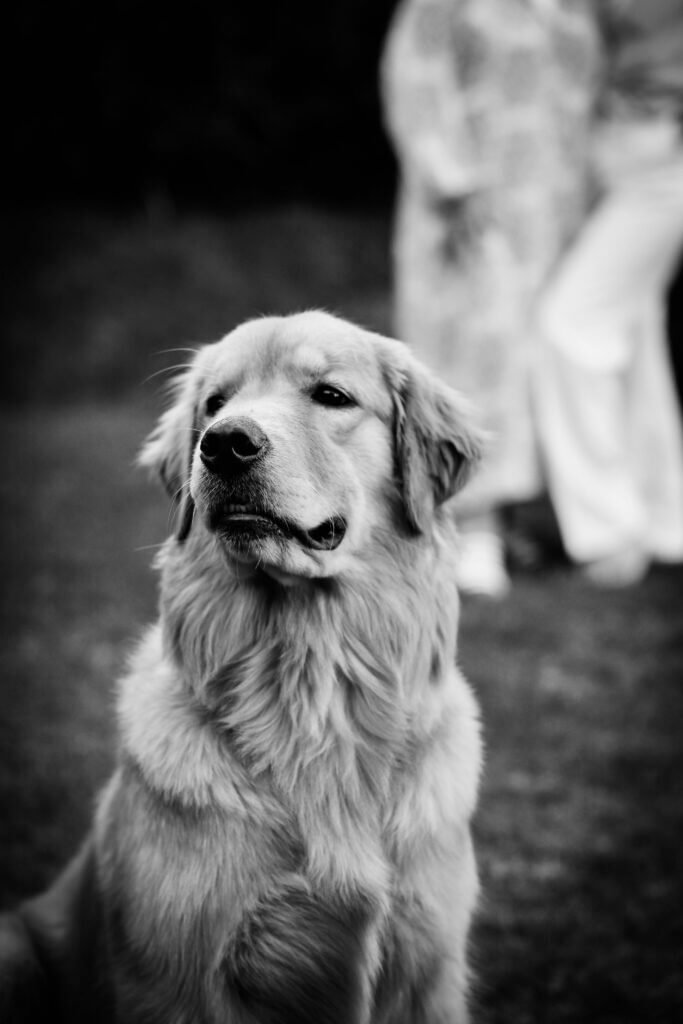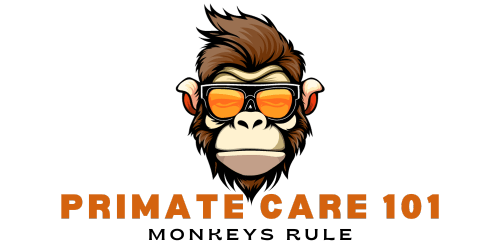So, you’ve decided to bring home a pet monkey and now you are wondering if they require vaccinations or medical care. Well, fret not, because in this article, we will enlighten you on all the essential information you need to know about taking care of your furry little friend. From the importance of vaccinations to regular check-ups, we’ve got you covered. So, let’s dive into the world of pet monkeys and discover what it takes to keep them healthy and happy.

Legal requirements
Legality of owning pet monkeys
Before considering owning a pet monkey, it is crucial to research and understand the legality of owning such an animal in your area. Different regions have varying laws and regulations regarding pet monkeys, and it is important to abide by them to avoid legal complications. While some places may allow pet monkeys, others may have strict bans or require specific permits. Familiarize yourself with local ordinances and consult with local authorities or animal control to ensure you are well-informed about the legalities surrounding pet monkey ownership.
Licensing and permits
In many cases, owning a pet monkey requires obtaining the necessary licenses and permits. These documents not only ensure that the monkey has been acquired legally, but they also help to regulate the trade of exotic animals and safeguard their welfare. The specific requirements for licensing and permits can vary by jurisdiction, but commonly include providing proof of the monkey’s origin, obtaining liability insurance, and demonstrating the ability to adequately care for the animal. It is important to consult with local authorities and obtain the appropriate licenses and permits before bringing a pet monkey into your home.
Import/export regulations
If you are considering obtaining a pet monkey from outside your country, it is essential to familiarize yourself with import and export regulations. These regulations may vary depending on the country of origin and destination. It is crucial to research and comply with all the necessary documentation, health examinations, and quarantine procedures required to legally bring a pet monkey across borders. Failure to adhere to these regulations can result in legal consequences and potentially put the animal’s wellbeing at risk. Seek guidance from relevant government agencies or consult with specialized animal import/export professionals to ensure a smooth and lawful process.
Health considerations
Routine veterinary care
Just like any other pet, pet monkeys require regular veterinary care to maintain their overall health and wellbeing. It is crucial to establish a relationship with a veterinarian experienced in primate care. Routine check-ups, vaccinations, and preventive care measures should be part of your pet monkey’s healthcare regime. Regular physical examinations allow veterinarians to assess the monkey’s general health, identify any underlying health issues, and provide appropriate treatment or preventive measures.
Vaccinations for monkeys
Vaccinations are a critical aspect of maintaining the health of pet monkeys. Depending on their species and local disease risks, monkeys may require vaccinations against specific diseases. Common vaccinations for pet monkeys include those to protect against diseases such as rabies, hepatitis, and tetanus. It is essential to consult with a veterinarian specializing in primate care to determine the necessary vaccinations for your specific monkey and establish an appropriate vaccination schedule.
Zoonotic diseases
Zoonotic diseases are illnesses that can be transmitted from animals to humans. It is important to note that some diseases can be shared between monkeys and humans, potentially posing a risk to both parties. Proper hygiene practices, regular veterinary care, and preventive measures, such as vaccinations, are crucial in reducing the risk of zoonotic diseases. Additionally, it is essential to educate yourself and your family members on the potential risks, symptoms, and necessary precautions to ensure the health and safety of both your pet monkey and yourself.
Common health issues
Pet monkeys, like any other animals, can experience common health issues. These may include dental problems, gastrointestinal disorders, respiratory issues, and other conditions. Regular veterinary check-ups and prompt medical attention are crucial in the early detection and treatment of any health concerns. It is important to stay observant of your pet monkey’s behavior, appetite, and overall well-being, and consult with a veterinarian if any unusual signs or symptoms arise.
Specialized medical needs
Some species of pet monkeys may require specialized medical care due to specific health concerns associated with their species or genetic predispositions. For example, certain monkeys may be more prone to diabetes or kidney issues. Understanding and addressing these potential medical needs is vital in providing your pet monkey with appropriate veterinary care and ensuring a high quality of life. Consult with a veterinarian experienced in primate care to identify and address any specialized medical needs that your pet monkey may have.

Socialization and mental stimulation
Importance of socialization
Monkeys are highly social animals and require adequate socialization to thrive in a domestic setting. Without proper socialization, pet monkeys may become stressed, anxious, or develop behavioral issues. It is crucial to provide your pet monkey with opportunities to interact with humans and other monkeys, promoting positive social behavior and ensuring their overall well-being. Socialization can be achieved through supervised playtime, interactions with family members, or even by providing a compatible monkey companion.
Behavioral enrichment
To keep your pet monkey mentally stimulated and engaged, it is important to provide them with a variety of enriching activities. Monkeys are intelligent animals and need mental stimulation to prevent boredom and the development of unwanted behaviors. Enrichment can include puzzle toys, foraging activities, and interactive playtime. Additionally, providing a stimulating environment with climbing structures, hiding places, and visual stimuli can enhance your pet monkey’s overall well-being and mental health.
Training and mental stimulation
Training not only helps you establish a bond with your pet monkey but also provides mental stimulation and encourages positive behaviors. By engaging in training sessions, you can teach your monkey basic commands, socialize them with different experiences, and promote mental agility. Positive reinforcement techniques, such as using treats or praise, work well in training monkeys. Consult with an experienced animal trainer or behaviorist who specializes in primate training to establish a training routine tailored to your pet monkey’s needs.
Bonding and companionship
Monkeys are highly social animals that thrive on companionship. Providing your pet monkey with ample opportunities for bonding and companionship is crucial for their emotional well-being. If possible, consider providing your pet monkey with a compatible monkey companion, as this can greatly enhance their overall quality of life. If obtaining another monkey is not feasible, dedicate regular time to interact with your pet monkey through play, grooming sessions, or simply spending quality time together. Building a strong bond with your pet monkey fosters a sense of security and contentment.
Dietary requirements
Primate-specific diet
One of the most crucial aspects of proper pet monkey care is providing them with a primate-specific diet. Monkeys have specific dietary needs that must be met to ensure their overall health and well-being. Commercially formulated primate diets or a carefully balanced combination of fresh fruits, vegetables, nuts, and high-quality primate pellets should make up the bulk of their diet. It is crucial to research and provide the species-appropriate foods, as different monkey species may have varying nutritional requirements.
Feeding schedule and portion control
Establishing a regular feeding schedule is important to ensure that your pet monkey receives the necessary nutrition and is not overfed. Consult with a veterinarian or a primate specialist to determine the ideal feeding schedule for your pet monkey’s species and age. Portion control is also vital to prevent obesity, which can lead to various health issues. Avoid free-feeding and provide measured portions of food appropriate for your monkey’s size and dietary needs.
Nutritional supplements
In some cases, nutritional supplements may be necessary to ensure your pet monkey receives all the necessary vitamins and minerals. Consult with a veterinarian specializing in primate care to determine if any supplementation is required for your specific monkey’s diet. It is important not to self-administer supplements without professional guidance, as excessive or unnecessary supplementation can be harmful to your pet monkey’s health.
Avoiding harmful foods
Certain foods can be toxic or harmful to pet monkeys and should be strictly avoided. Some common foods that should not be fed to monkeys include chocolate, caffeine, alcohol, dairy products, processed foods, and high-sugar treats. Additionally, seeds with high levels of cyanide, such as apple or cherry seeds, should be removed before feeding fruits to your pet monkey. Research and familiarize yourself with specific foods that may be harmful to your pet monkey’s species, and ensure your monkey’s diet consists only of safe and nutritious foods.

Housing and environment
Cage size and design
Providing an appropriate housing environment is essential for the happiness and well-being of your pet monkey. Monkeys require spacious cages that allow them to move, climb, and explore. The cage should be large enough to accommodate both the monkey’s physical activities and mental stimulation. The cage design should include platforms, branches, and ropes to encourage climbing and swinging. Consult with a primate specialist or a veterinarian experienced in monkey care to determine the ideal cage size and design for your specific monkey species.
Environmental enrichment
Creating an enriched environment within the monkey’s housing area is crucial in preventing boredom and promoting mental stimulation. Provide a variety of toys, puzzles, and objects for your pet monkey to interact with. Different textures, colors, and sounds can help keep your monkey engaged and stimulated. Properly designed play structures, such as hammocks or tunnels, can also provide additional entertainment and environmental enrichment. Regularly rotate and introduce new items to prevent monotony and keep your pet monkey engaged.
Temperature and humidity
Monkeys are native to tropical regions and are sensitive to temperature and humidity fluctuations. It is important to provide an appropriate climate-controlled environment to ensure your pet monkey’s comfort and well-being. The optimal temperature and humidity ranges can vary depending on the monkey’s species, so consult with a veterinarian or primate specialist to determine the specific requirements for your pet. Ensure that the housing area is well-ventilated and provides suitable temperature and humidity levels through heating, cooling, and humidifying devices as needed.
Cleanliness and sanitation
Maintaining a clean and sanitary living environment for your pet monkey is crucial in preventing the spread of diseases and ensuring their overall health. Regularly clean the cage, toys, and surfaces with safe and appropriate disinfectants to eliminate bacteria and viruses. Provide fresh bedding material and routinely replace soiled or worn-out items. Along with regular cleaning, it is important to practice good personal hygiene, such as washing hands before and after handling your pet monkey, to minimize the risk of zoonotic diseases.
Grooming and hygiene
Bathing and grooming
Proper grooming is essential to maintain the health and hygiene of your pet monkey. While some monkeys may enjoy occasional bathing or showering, others may prefer spot cleaning with a damp cloth. Consult with a veterinarian or primate specialist to determine the best approach for bathing or groom your specific monkey breed. Pay attention to their fur or skin condition and promptly address any signs of dermatological issues or parasites. Regular grooming routines not only keep your pet monkey clean but also provide an opportunity for bonding and interaction.
Nail trimming
Regular nail trimming is necessary to prevent overgrown nails, which can lead to discomfort or injuries. Carefully trimming your pet monkey’s nails with appropriate tools can avoid accidental injury to both you and the monkey. Seek guidance from a veterinarian or a primate specialist to learn the proper technique and schedule for nail trimming. If you are uncomfortable doing it yourself, consult with a professional groomer or veterinarian for assistance.
Dental care
Maintaining good dental hygiene is crucial for your pet monkey’s oral health and overall well-being. Provide appropriate chewing toys and materials to prevent dental issues and promote proper teeth maintenance. Regularly inspect your pet monkey’s teeth for any signs of tartar buildup, gum inflammation, or dental abnormalities. If necessary, consult with a veterinarian to address any dental concerns and establish a dental care routine for your pet monkey, which may include professional cleanings or toothbrushing.
Preventing parasites
Monkeys, like any other animal, can be susceptible to parasites such as fleas, ticks, and mites. Preventive measures, such as regular checks for external parasites and appropriate use of anti-parasitic treatments, are essential to ensure your pet monkey remains healthy and parasite-free. Consult with a veterinarian or primate specialist to determine the best preventive measures and treatments for your pet monkey’s specific needs. Maintaining a clean and sanitary environment, regular grooming, and practicing good hygiene can also help minimize the risk of parasitic infestations.
Exercise and physical activity
Importance of exercise
Providing ample opportunities for exercise is vital for the physical and mental well-being of pet monkeys. Regular exercise helps prevent obesity, promotes muscle tone, and stimulates mental activity. Monkeys are highly active animals and need daily exercise to burn off energy and prevent boredom. Engaging in physical activities with your pet monkey strengthens the bond between you and provides an outlet for their natural behaviors.
Indoor/outdoor activities
Depending on your living situation and local laws, both indoor and outdoor activities can contribute to your pet monkey’s exercise routine. Indoor activities can include play sessions, obstacle courses, or training exercises. Ensure that your indoor environment is safe and free from potentially hazardous objects that may harm your pet monkey. If suitable and permitted, outdoor activities such as supervised walks on a leash or access to a secure outdoor enclosure can provide additional exercise and exposure to natural stimuli.
Toys and playtime
Toys play a crucial role in providing mental stimulation and physical activity for pet monkeys. Toys should mimic natural behaviors and activities, such as puzzles, foraging, or interactive toys. Rotate and introduce new toys regularly to prevent boredom and maintain your pet monkey’s interest. Engaging in interactive playtime with your pet monkey not only serves as exercise but also strengthens the bond between you and your pet.
Physical examinations
Regular physical examinations by a veterinarian specializing in primate care are important to monitor your pet monkey’s overall health and detect any potential health concerns. During these examinations, the veterinarian will assess the monkey’s body condition, listen to their heart and lungs, check for any abnormalities, and provide necessary preventive care or treatments. Physical examinations should be included as part of your pet monkey’s routine veterinary care to ensure their ongoing well-being.
Emergency healthcare
Finding emergency veterinarians
Knowing where to seek emergency veterinary care is crucial in case of unexpected health emergencies involving your pet monkey. Prior to bringing a pet monkey into your home, research and identify veterinarians or veterinary clinics equipped to handle primate emergencies. Keep their contact information readily accessible, including after-hours emergency contact details. This preparation ensures that you can promptly seek appropriate medical attention if a critical situation arises.
First aid training
Having the knowledge and skills to administer basic first aid to your pet monkey can be vital in emergency situations. Consult with a veterinarian or primate specialist to receive guidance on basic first aid techniques specific to monkeys. Learn how to properly clean and dress wounds, perform CPR, and address common emergencies that may arise. However, it is essential to remember that immediate veterinary care is always necessary in emergencies, and first aid should only be administered when it is safe to do so.
Recognizing signs of distress
It is important to familiarize yourself with the signs of distress or illness in pet monkeys. Recognizing early indicators of health problems allows for timely intervention and appropriate medical attention. Signs of distress in monkeys may include changes in appetite, behavior, or appearance, excessive lethargy, changes in stool or urine consistency, respiratory difficulties, or visible injuries. Regularly observe your pet monkey and consult with a veterinarian if you notice any abnormal or concerning signs.
Emergency preparedness
Being prepared for potential emergencies involving your pet monkey is crucial for their well-being. Keep a well-stocked first aid kit specific to primate needs and have emergency contact information readily available. Prepare a transport carrier suitable for your monkey’s size and have it easily accessible in case of evacuation or emergency transportation. Consider creating an emergency plan and ensuring that all family members are aware of their roles and responsibilities in case of an emergency. By staying prepared, you can act promptly and efficiently in ensuring your pet monkey’s safety and health.
Cost considerations
Veterinary expenses
Pet monkeys, like any other animal, require veterinary care, which can incur expenses. Routine check-ups, vaccinations, and emergency medical treatment are all factors to consider when budgeting for a pet monkey’s veterinary expenses. Additionally, specialized primate veterinarians, medications, laboratory tests, and surgical procedures may incur additional costs. It is important to research local veterinary services specializing in primate care and understand the potential costs associated with ongoing healthcare for your pet monkey.
Specialized care costs
Pet monkeys have unique care requirements that may require specialized products or services, which can contribute to the overall cost of ownership. Factors such as primate-specific diets, suitable housing, environmental enrichment, and grooming supplies should all be taken into account when budgeting for specialized care costs. Research and understand the specific needs of your pet monkey species to estimate the associated expenses accurately.
Insurance options
Considering pet insurance for your monkey can provide financial protection against potential veterinary costs. Some insurance companies offer exotic pet insurance plans that cover medical expenses for pet monkeys. However, it is important to carefully review policy coverage, limitations, and exclusions to ensure that your specific pet monkey’s needs are covered. Consult with an insurance professional experienced in exotic pet insurance to explore available options and determine if insurance is a viable choice for your pet monkey.
Budgeting for unexpected expenses
When budgeting for pet monkey ownership, it is crucial to account for unexpected costs that may arise. Emergencies, unforeseen medical issues, or specialized treatments may require additional financial resources. Establishing an emergency fund or setting aside monthly savings can help mitigate the potential financial burden of unexpected expenses. Additionally, staying informed about the healthcare needs and potential risks associated with pet monkeys enables you to plan and budget accordingly.
Ethical and moral obligations
Responsibility of pet ownership
Owning a pet monkey comes with significant responsibilities, including meeting the animal’s physical, social, and emotional needs. It is essential to understand the commitment involved in providing proper care, enrichment, and medical attention for the entirety of the monkey’s life span. Owning a pet monkey should not be undertaken lightly, as it requires a significant investment of time, effort, and financial resources to ensure the animal’s well-being.
Primates in captivity
The issue of keeping primates, including pet monkeys, in captivity is complex and raises ethical considerations. Primates are highly intelligent and socially complex animals that have evolved to live within their natural habitats. Removing them from their natural environment and keeping them as pets can have significant implications regarding their welfare and conservation. It is important to critically evaluate the ethical implications of pet monkey ownership and consider alternative ways to support conservation efforts and promote the well-being of primates in their natural habitats.
Conservation and preservation
As responsible pet owners, it is crucial to support conservation efforts aimed at preserving primate species in their native habitats. Habitat destruction, illegal wildlife trade, and other human activities have led to population declines and endangered status for many primate species. By supporting reputable conservation organizations, raising awareness about the importance of preserving primate habitats, and avoiding any involvement in the illegal pet trade, individuals can contribute to the conservation and preservation of these incredible animals.
Rescue and rehabilitation
In some cases, owning a pet monkey may involve providing a home for a rescued or rehabilitated primate. These situations often arise due to unfortunate circumstances such as illegal trade, abandonment, or pet owners unable to provide appropriate care. It is essential to consult with primate rescue and rehabilitation organizations who can guide and support you in providing a safe and suitable environment for a rescued primate. By adopting a rescued primate, you are providing a second chance at life and contributing to the ethical treatment of these animals.
In conclusion, owning a pet monkey is a significant responsibility that requires thorough consideration, understanding of legal requirements, commitment to providing proper care, and budgeting for associated expenses. Ensuring the health, well-being, and ethical treatment of pet monkeys involves routine veterinary care, appropriate socialization and mental stimulation, a primate-specific diet, suitable housing and environment, grooming and hygiene practices, regular exercise, emergency preparedness, and an understanding of the legal and ethical considerations of pet monkey ownership. By fulfilling these obligations, pet owners can provide a safe and enriching life for their pet monkey while contributing to the conservation and responsible treatment of these remarkable animals.


